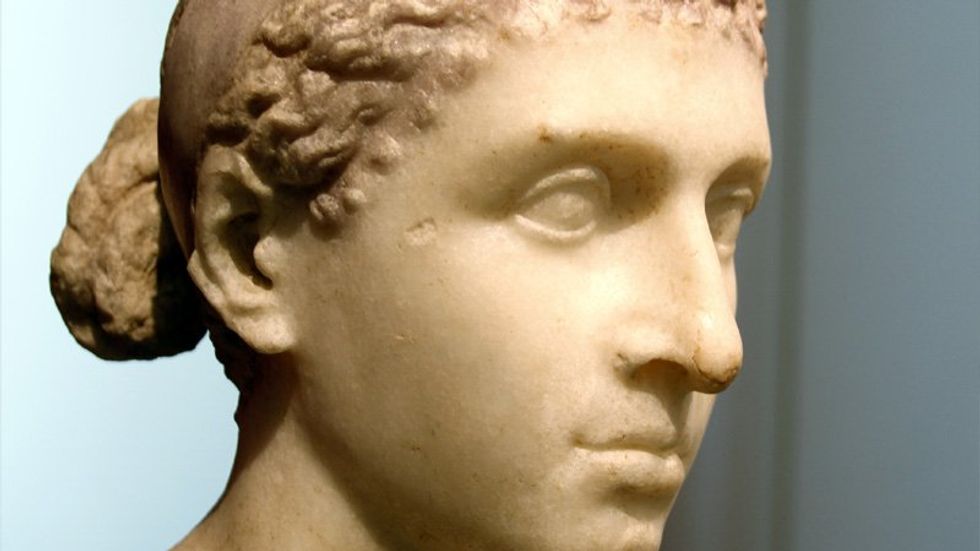Cleopatra Controversy: Unveiling the Truth Behind the Netflix Drama
The Debate
Egypt’s antiquities ministry insisted on Thursday that Cleopatra had “white skin and Hellenistic characteristics” in an ongoing row over a Netflix drama-documentary depicting the famed beauty of antiquity as black.
The Netflix Drama
“Queen Cleopatra”, produced by Jada Pinkett Smith and starring Adele James, is due for release on the streaming platform on May 10. As Egypt’s last pharaoh, Cleopatra fights to protect her throne, family, and legacy in this docudrama featuring reenactments and expert interviews.
Understanding Cleopatra
Cleopatra VII Philopator, the last active ruler of the Ptolemaic Kingdom of Egypt, is known for her intelligence, charisma, and diplomatic skills. She was a descendant of Macedonian Greek royalty and a member of the Ptolemaic dynasty, which ruled Egypt after the death of Alexander the Great.
Throughout history, Cleopatra has been portrayed in various ways in art, literature, and film. While some portrayals depict her as a woman of African descent, others emphasize her Greek heritage. The debate over Cleopatra’s ethnicity has been ongoing for centuries, with different interpretations based on cultural and historical contexts.
The Impact
The controversy surrounding the portrayal of Cleopatra in the Netflix drama reflects broader debates about representation, diversity, and historical accuracy in media. By challenging traditional narratives and exploring diverse perspectives, such productions can spark important discussions and encourage viewers to question assumptions about the past.
How does this affect me?
As a viewer, the Cleopatra controversy may prompt you to reconsider your perceptions of historical figures and the ways in which they are portrayed in popular media. By engaging with diverse representations and exploring different viewpoints, you can gain a deeper understanding of complex historical figures like Cleopatra and the cultural dynamics that shape their legacy.
How does this affect the world?
The Cleopatra controversy has the potential to influence broader conversations about representation, diversity, and the power of storytelling in shaping public perceptions of history. By challenging traditional narratives and exploring new perspectives, media productions like the Netflix drama can contribute to a more inclusive and nuanced understanding of the past, encouraging audiences to question assumptions and embrace diverse viewpoints.
Conclusion
In conclusion, the Cleopatra controversy highlights the complexities of historical representation and the importance of engaging with diverse perspectives in media. By exploring different interpretations of figures like Cleopatra, we can gain a richer understanding of the past and the cultural forces that continue to shape our perceptions today.





